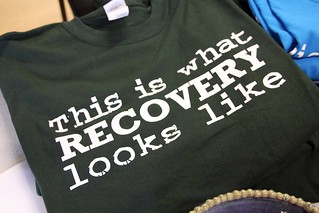 |
| (Photo credit: Portland Prevention) |
‘Adding the volcanic activity into calculations effectively reduced the discrepancy between observed temperature trends and the models that underpin the Intergovernmental Panel on Climate Change’s reports on climate change attributable to human activity. Those models assumed that the additional aerosols pumped into the atmosphere by such events at the 1991 eruption of Mount Pinatubo in the Philippines would eventually subside to zero.“That’s not what happened in the real world,” said Benjamin D. Santer, a climate scientist at Lawrence Livermore National Laboratory who was lead author of the new study. “Effectively, the real world has experienced a partial cooling effect associated with this uptick in volcanic activity.”But it won’t last, we’re told. Oooooh no, it won’t because you see, we’re doomed.
I think it likely that any scientific climate study not taking volcanoes into account as a variable would be a tad suspect in the first place. But now they have and OMG we’re in trouble. Even odder, mind you, is this pro-warming report not taking into account the NASA study showing how the rate of greenhouse gas escape has been underestimate by a factor of ten….and that in fact, the entire CO2 theory (which does still enjoy a consensus) is being chiselled away at with increasing chiselliness. Remember: in 1520, there was a broad consensus in favour of the phlogiston theory.
But for sheer unconscious hilarity, you’d go a long way to beat the quote at the end of the LAT piece:
“It’s not like we’re whistling around in the dark trying frantically to come up with ever more implausible explanations for what happened,” insisted Santer.Perish the thought, Bernie – perish the thought. I wouldn’t dream of suggesting such a thing….any more than I’d accuse Mario Draghi of staging a phantom, forged and utterly counterfeit revival in the eurozone. Having done a deal with Asian persons to splurge into Italian and Spanish bonds (in return for favours of an opposite but roughly equal nature) Signor Draghula now drags us face to face with another curious conundrum: data from Russell Investments, an asset management firm, show Portugal, Italy, Ireland and Greece have been the best performers in Europe so far in 2014.
This is the same Italy that’s politically paraplegic, the same Portugal that has no money left in the social pension fund, and the same Greece that will default on May 21st next without bailout and/or restructuring within the next few weeks.
It’s partly uncle Mario printing more money and achieving the same paper bottom lines that kept US stock markets buoyant after 2011. And its partly the greed of investment ‘advisers’ selling tartan paint to wide-eyed clients. Read this classic from Barry Norris, fund manager of the Argonaut European Alpha fund and weep:
“The best time to invest in a country is often when its economy is emerging from recession and all of the bad news is in the rear view mirror,” said Mr Norris. Staggeringly, he was referring to Greece.So here’s a little due diligence for you on Mr Norris and his train set: his Argonaut European Alpha fund is heavily invested in Greek banks, including the National Bank of Greece and Piraeus Bank.
Far be it from me to suggest that he would say that. Perish the thought, Barry – perish the thought.




